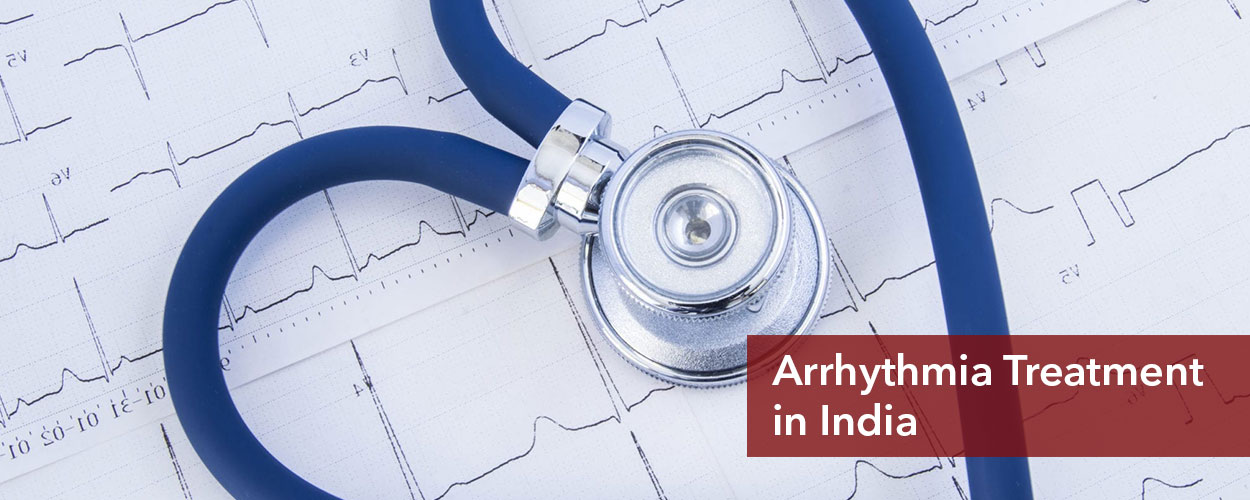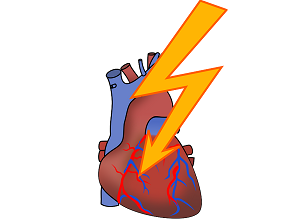Surgery
Surgery is most often recommended for the treatment of arrhythmias when all of the non-surgical options fail to work. There are different types of surgical procedures that can be conducted, depending on the condition of the patient and the type of arrhythmia that he or she may be suffering from. Some of the common types of surgical procedures used for the treatment of arrhythmias in India include the following:
Heart surgery is a major procedure and is mostly recommended for treatment of an arrhythmia when:
- The patient needs heart surgery to treat an underlying heart disease which is causing the arrhythmia. It may involve valve surgery or coronary artery bypass surgery.
- The Maze procedure and its modified version is usually reserves for people who have atrial fibrillation that can not be controlled with medications or non-surgical treatment methods. It is mostly recommended when other heart surgeries such as valve surgery are also planned, but it can be performed on its own too.
- When slow heartbeats or bradycardias don’t have an underlying cause that can be treated, often a pacemaker implantation is recommended as there are currently no medications to reliably increase the heart rate.
Device implantation –
Pacemaker implantation: A pacemaker is a special device used to correct the rhythm of the heart. This device, placed just below the surface of the chest, is connected to an electrode that activates the heart to beat faster if the heartbeat is slow. In case the heartbeat is too fast, it triggers the heart to beat slower.
Internal cardioverter defibrillator (ICD): ICD is a medical device used in case the heart beats too rapidly or if it fibrillates. This device triggers the heart to beat slower in case it detects that the heart rate is too high or if it crosses a certain limit. It helps the heart beat more effectively and pump blood as per nominal rare. This method is not used for the treatment of atrial fibrillation.
Biventricular pacemakers and defibrillators/ cardiac resynchronization therapy (CRT)- A biventricular pacemakers and defibrillators is a treatment option for patients with heart failure and also have evidence of an asynchronous (uncoordinated) contraction of the left ventricle. It is also called as cardiac resynchronization therapy (CRT). The implanted device helps synchronize the contraction of the left ventricle and restore normal rhythm. A CRT-D device has additional one or two leads than a traditional pacemaker and defibrillator which are usually placed in the right ventricle and right atrium. This device uses the extra lead to reach the back or left side of the left ventricle. During the procedure, the lead is typically guided through a small vein on the back of the heart, called the coronary sinus.
Other procedures
Pulmonary vein isolation – This method can be used for people who have frequent, paroxysmal or persistent atrial fibrillation. The isolation of the pulmonary veins is a type of ablation technique in which the areas that are targeted are thought to cause atrial fibrillation. During this procedure, the doctor creates the rings of scar to isolate the particular area which is responsible for triggering atrial fibrillation.
Minimally invasive heart surgery: A minimally invasive heart surgery is used to remove the abnormal heart tissues and correct other defects that may be leading to arrhythmia. Minimally invasive surgery leads to smaller scars as the heart is accessed through small holes. There is no need to open up the chest and separate the ribs, as in the case of open-heart surgery. As a result, the patient is able to recover quickly.
In some cases, following procedures may also be the recommended for treatment of heart arrhythmias:
Maze procedure: In this procedure, the surgeon makes a few surgical incisions in the tissue of the upper half of the heart (in the atria) and create a maze like pattern of scar tissue. As the scar tissues don’t conduct electricity, they may interfere with electrical energy that causes some types of arrhythmia.
It is an effective procedure, but because it involves surgery, the doctors generally recommend it for people who don’t respond to other treatments. Patients who are having a heart surgery for another reason may also be recommended this surgery.
Coronary bypass surgery: The doctor advises CABG when the patient has severe coronary artery disease along with arrhythmias. The coronary bypass surgery aims to improve the blood flow to the heart.




